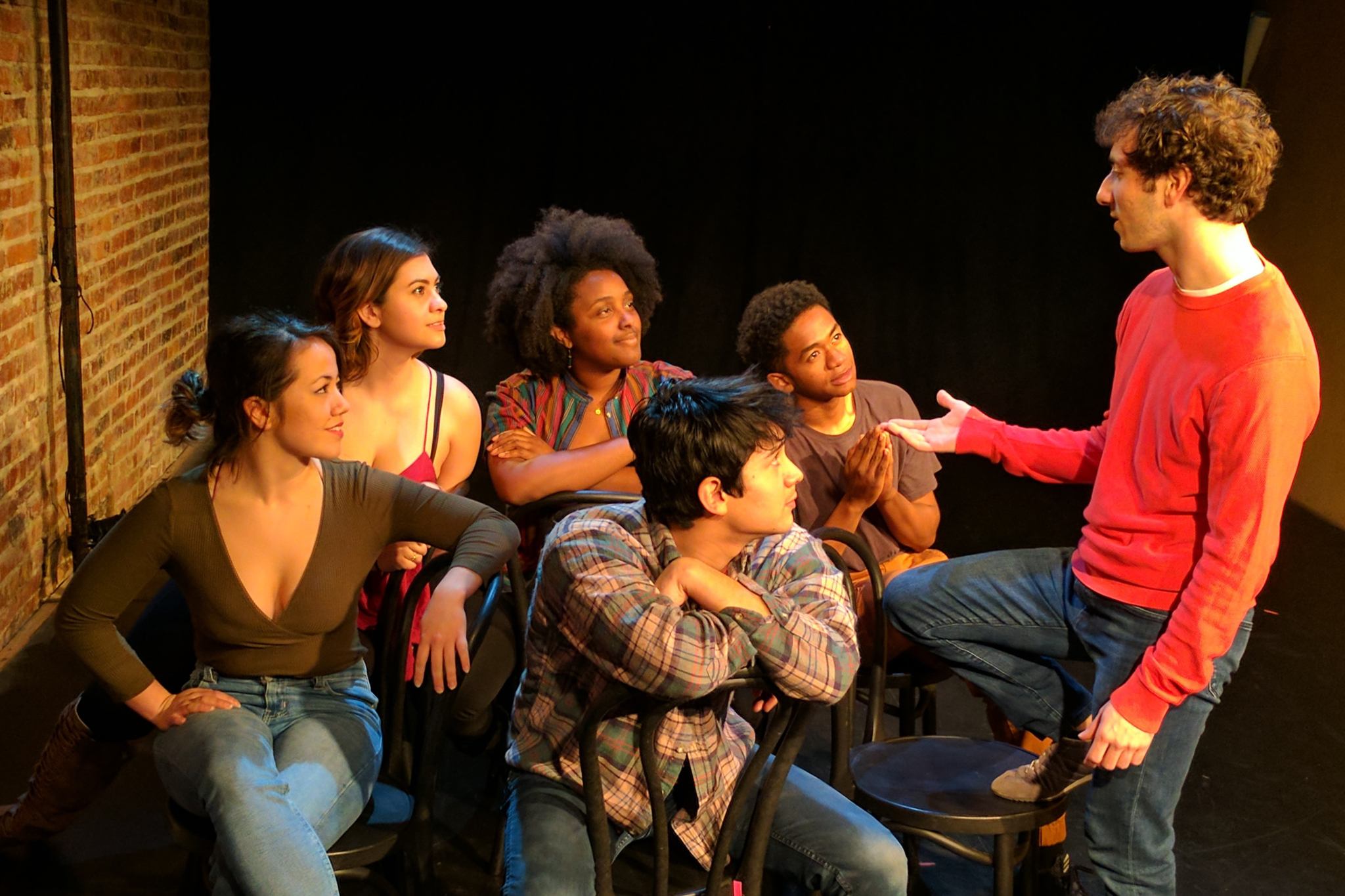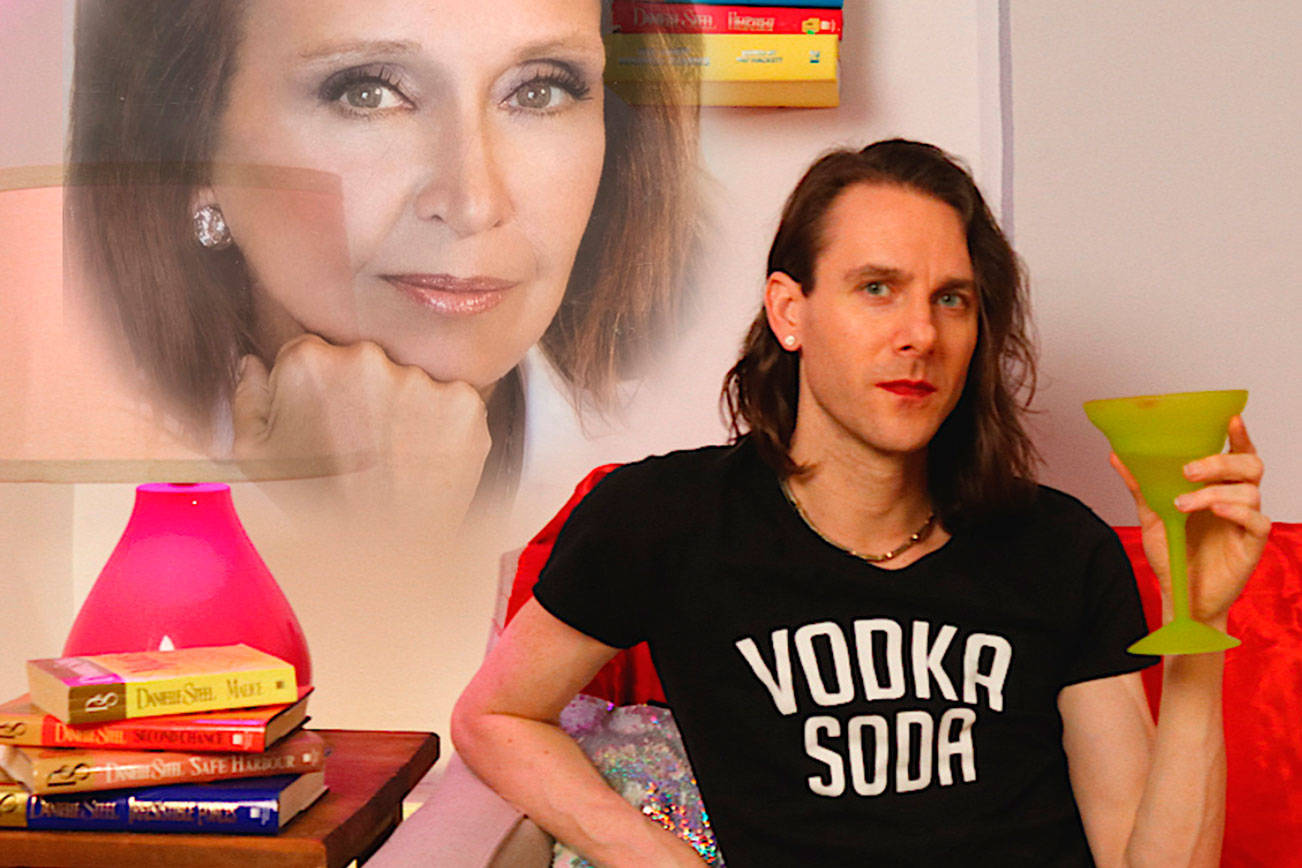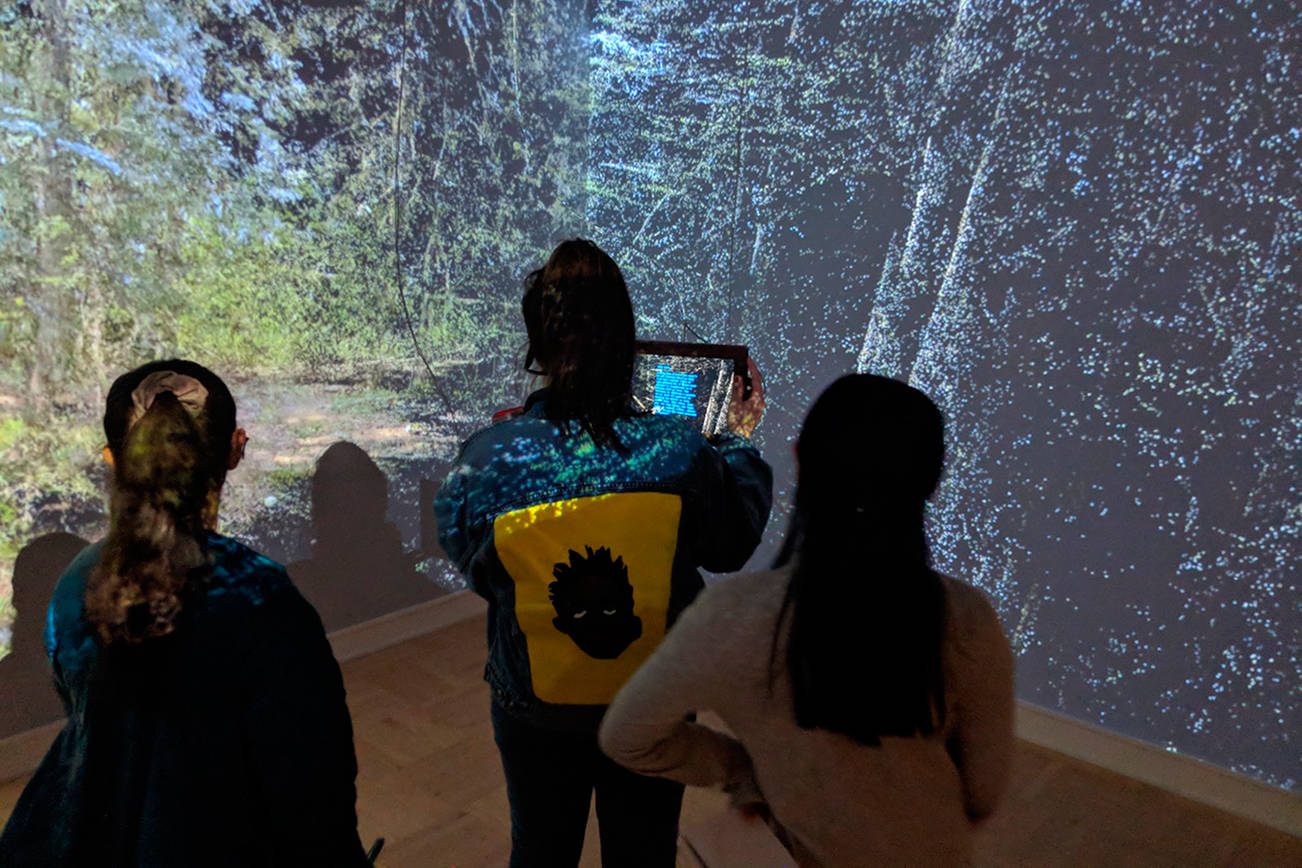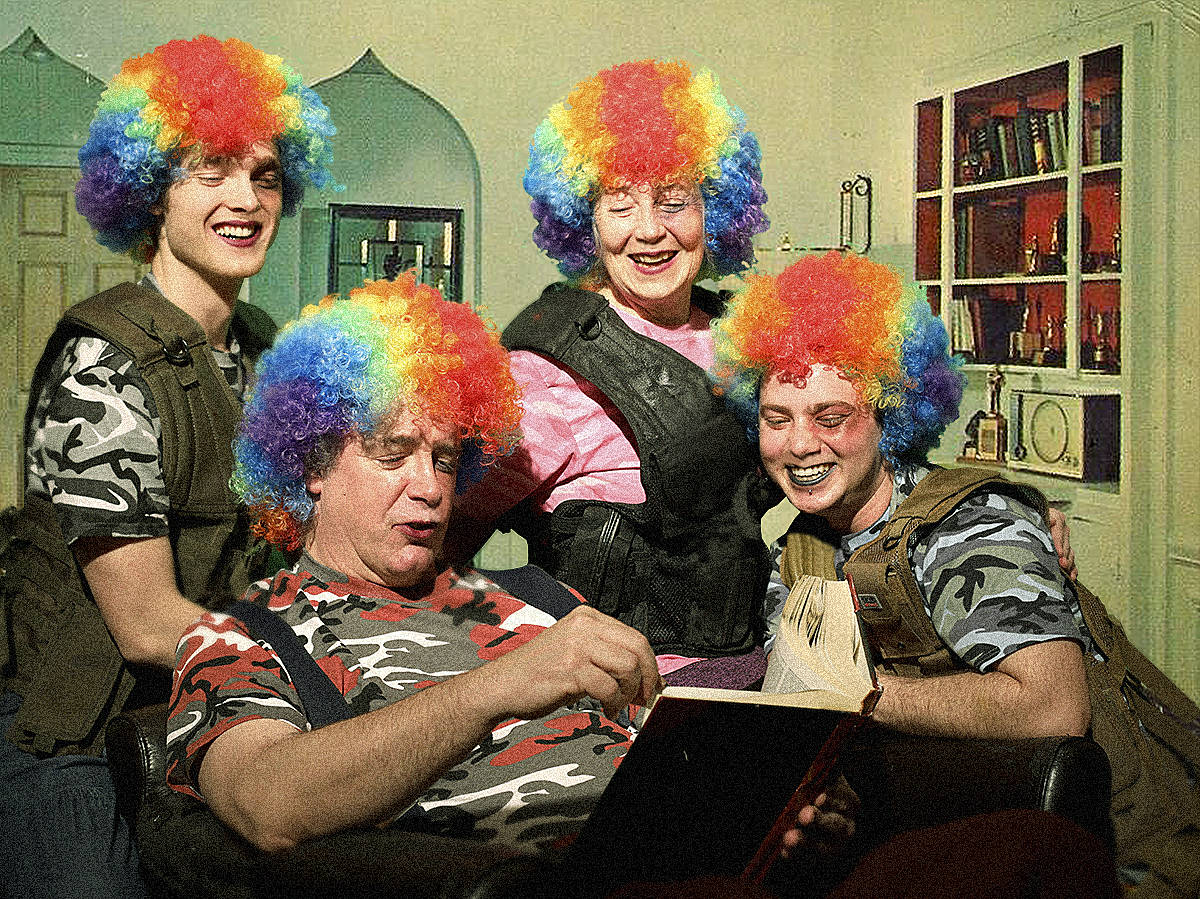Halfway through the current production of Raisins in a Glass of Milk, the ensemble cast moves into position to address the audience directly. Surrounded by the theater’s aging brick walls, the production’s six actors drag black chairs across the floor. The sound of wood hitting concrete reverberates throughout the space before the actors swiftly set their chairs—the only set for this stripped-down performance—in a straight row and face the audience. White light streams down from above and hits their faces, casting deep shadows. In unison they exclaim “White people” and clap twice.
They are talking to white people, and they are talking about white people. One actor recites a racist remark he heard from white folks in response to protests. “Black Lives Matter is the new KKK,” they say. The ensemble claps again. Then another member recounts another racist remark. And they clap again. And again. And again.
By this point in the play, there is little doubt of the intent of Lexi Chipman’s one-act, produced by the Raisins ensemble, a Seattle theater group made entirely of people of color. Through a collection of scenes, dialogue, and storytelling, the ensemble shares the stories of actors of color from across the country, successfully deconstructing the ways in which white supremacy operates in the theater and envisioning a future of theater that is not so white.
In another scene actors Maya Burton and Mykail Cooley sit next to one another in the middle of the stage, discussing black excellence and the beauty of being black. “We ooze gold,” Burton says. That they do. The young actors here are predominantly graduates of Cornish College of the Arts, some just beginning to develop their craft outside academia. Plenty of passion and potential shine through in an innovative staging of this conversational and educational work.
Each vignette is well developed yet holds a raw intensity, Chipman’s script presenting the stories of numerous POC in a deeply humanizing and poetic way. Each character is granted a story and struggle, and in the hands of director and ensemble member Rafael Molina these flow smoothly into one another. Yet Molina makes room for brief missives, poignant wisdom delivered by the actors, sandwiched between stories. Recollections of casting calls and pleas to hire directors of color put Seattle’s theater community on the spot, and it would be wise for those in the community’s positions of power to see and engage with this work.
In one striking scene, Molina shares his first experiences with El Teatro Campesino, a Latinx theater company that tours the United States. It began by spreading the messages of Cesar Chavez to farmworkers across the United States in 1965 and continues to do revolutionary work today. Molina tells of his excitement in seeing a theater company that represents his own community and is engaged in work for social change. His story is rooted in the importance of seeing and making work as a POC theater artist that is relevant to POC narratives, one of the central themes of the play.
In another scene, an ensemble member addresses white folks ignorant of racial politics, demanding “Do your own homework.” Later, in a kind of classroom setup, the ensemble members ask one another “What is your definition of a diverse theater?” Sherif Amin stands up and, with passion and fierce clarity, maps out the ways in which specifically white Seattle theater attempts to engage in the creation of diverse theater. Too often this is theater born in white shame and guilt, Amin asserts, and not an investment in black or brown futures, bodies, or liberation. Many white folks do not know how to engage with their own internalized sense of racial superiority, and produce a kind of theater that echoes this lack of knowledge and engagement. By seeking to produce a diverse theater without a systemic anti-racist understanding, white-operated theater spaces run the risk of erasing the histories of actors of color, he says, engaging with stereotyping, producing work that is out of date, and ultimately failing to provide space for people of color to create and flourish.
In Raisins’ final scene, the actors ask: “What would you say to your younger self?” Together they ask, “Will I be loving?” Raisins in a Glass of Milk, 18th & Union, 18thandunion.org. $12–$25. All ages. 7:30 p.m. Sun. Ends Feb. 26. stage@seattleweekly.com








